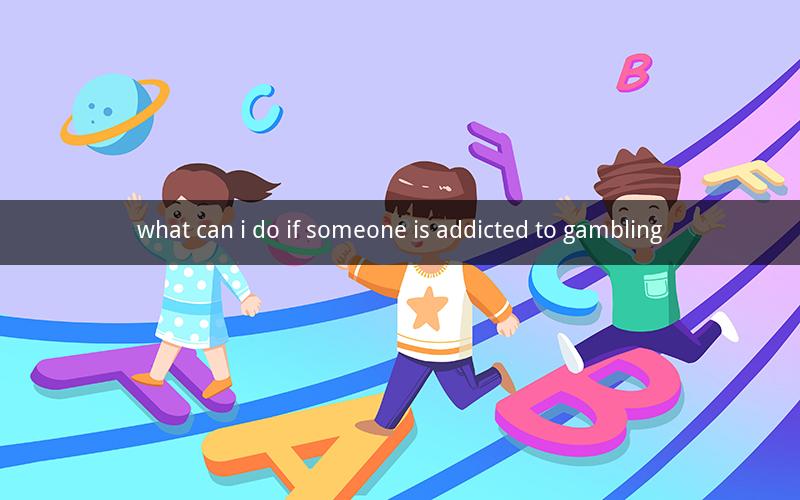
Table of Contents
1. Understanding Gambling Addiction
2. The Impact of Gambling Addiction
3. Recognizing the Signs of Gambling Addiction
4. Strategies to Help a Gambler
5. Professional Help for Gambling Addiction
6. The Importance of Support Systems
7. Building a Supportive Environment
8. Encouraging Healthy Coping Mechanisms
9. Legal and Financial Consequences
10. The Road to Recovery
---
1. Understanding Gambling Addiction
Gambling addiction, also known as problem gambling, is a disorder characterized by uncontrollable gambling behavior. This condition affects individuals of all ages, genders, and backgrounds. Understanding the nature of gambling addiction is crucial in developing effective strategies to help someone who is struggling with this issue.
2. The Impact of Gambling Addiction
Gambling addiction can have severe consequences on an individual's life, including financial, emotional, and social problems. It can lead to financial ruin, strained relationships, job loss, and even legal troubles. Recognizing the impact of gambling addiction can motivate individuals to seek help and support.
3. Recognizing the Signs of Gambling Addiction
Identifying the signs of gambling addiction is the first step in providing assistance to a struggling individual. These signs may include:
- Secretive behavior related to gambling
- Increased time spent on gambling activities
- Borrowing money or selling personal possessions to fund gambling
- Lying about gambling habits
- Neglecting responsibilities due to gambling
4. Strategies to Help a Gambler
There are various strategies that can be employed to help someone who is addicted to gambling. These strategies include:
- Encouraging open communication about gambling issues
- Limiting access to gambling venues and online platforms
- Developing a budget to manage financial concerns
- Setting boundaries and consequences for continued gambling behavior
- Suggesting participation in self-help groups or counseling
5. Professional Help for Gambling Addiction
Professional help is essential in addressing the complex nature of gambling addiction. Mental health professionals, such as therapists or counselors, can provide tailored support and treatment plans. These professionals can offer various therapeutic approaches, including cognitive-behavioral therapy (CBT), to help individuals overcome their addiction.
6. The Importance of Support Systems
Support systems are crucial in the recovery process. Family, friends, and support groups can provide emotional support and encouragement. It is essential for individuals with gambling addiction to surround themselves with a network of supportive individuals who understand their struggles.
7. Building a Supportive Environment
Creating a supportive environment involves several steps:
- Encouraging open communication and expressing empathy
- Providing resources for education and support
- Participating in family therapy or counseling sessions
- Celebrating achievements and progress in recovery
8. Encouraging Healthy Coping Mechanisms
Individuals with gambling addiction may struggle with finding healthy coping mechanisms. Encouraging activities that promote relaxation and emotional well-being, such as exercise, hobbies, and meditation, can help reduce the urge to gamble.
9. Legal and Financial Consequences
Legal and financial consequences can be severe for individuals with gambling addiction. It is important to address these issues by seeking legal advice and working with financial professionals to manage debts and develop a plan for financial recovery.
10. The Road to Recovery
The road to recovery from gambling addiction is challenging but achievable. It involves:
- Committing to the recovery process
- Staying committed to the support system
- Remaining vigilant for triggers and relapse
- Celebrating milestones and progress
---
Questions and Answers
1. What is the most effective form of treatment for gambling addiction?
- Cognitive-behavioral therapy (CBT) has been shown to be one of the most effective forms of treatment for gambling addiction.
2. How can I tell if someone I know is addicted to gambling?
- Look for signs such as secretive behavior, increased time spent on gambling activities, and neglecting responsibilities.
3. Can gambling addiction be cured?
- While there is no permanent cure, individuals can achieve long-term recovery with the right treatment and support.
4. How can I support someone who is struggling with gambling addiction?
- Offer empathy, listen actively, and encourage them to seek professional help and join support groups.
5. Can a person overcome a gambling addiction on their own?
- It is possible for individuals to overcome gambling addiction on their own, but seeking professional help and support can greatly increase the chances of success.
6. How can I help someone who is in debt due to gambling?
- Encourage them to seek financial counseling and support, and assist them in creating a budget and debt repayment plan.
7. What are some signs of a gambling addiction relapse?
- Signs of relapse may include secretive behavior, increased gambling activities, and withdrawal from support systems.
8. Can a gambling addiction affect a person's relationships?
- Yes, gambling addiction can strain relationships, leading to conflict, trust issues, and emotional distance.
9. How long does it take to recover from a gambling addiction?
- Recovery time varies from person to person, but many individuals experience significant improvement within a few months to a year.
10. What resources are available for individuals struggling with gambling addiction?
- Resources include counseling services, support groups, financial counseling, and online resources dedicated to gambling addiction.